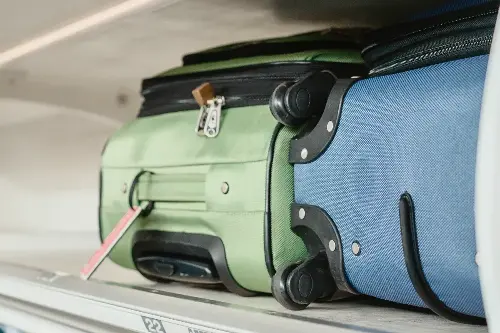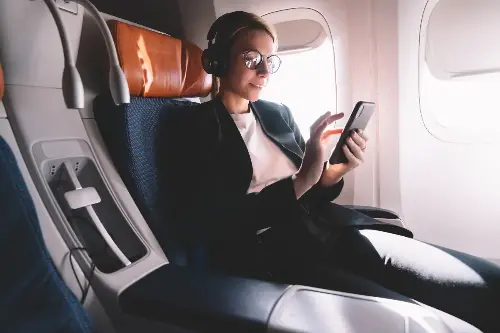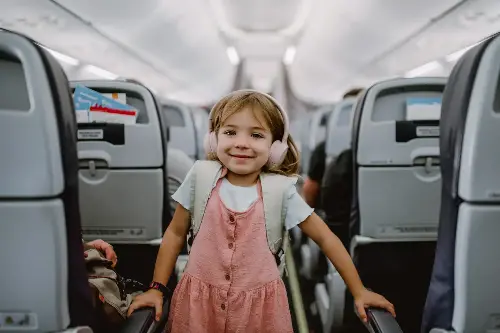Air travel has become an integral part of modern society, a gateway to global cultures, business opportunities, and personal adventures. However, amidst the excitement of soaring above the clouds, passengers often commit several flight faux pas that can diminish the experience for everyone on board. Understanding these in-flight “don’ts” can make your journey more pleasant and respectful for fellow travelers and crew alike.

One of the most common yet overlooked indiscretions is ignoring luggage etiquette. Overhead bin space is a shared commodity, and stuffing your bag to the brim before forcing it into a compartment can cause frustration and delays. Consider checking in oversized bags and bringing only what’s necessary on board. Moreover, be mindful when opening overhead lockers, as items can shift during flight and fall out, potentially causing injury.

Personal space is another luxury that is in limited supply on an aircraft. Encroaching on your neighbour’s seat with elbows or legs can make a long flight feel even longer for them. Be conscious of your body movements and ensure you're staying within your allotted space - the armrest is often the unspoken boundary. Aisle dwellers, be aware that this space is frequented by passengers and the crew, keeping limbs and belongings clear prevents obstruction and accidents.
Noise control is yet another measure of airplane etiquette often transgressed. The confined space amplifies sounds, making your actions the background score to everyone’s travel experience. The clicking sound of an impatient leg-shake, a loud conversation, or the volume bleeding from your headphones can all contribute to a cacophony of unwanted noise. Use headphones for personal entertainment and keep the volume at a reasonable level to ensure that you're not imposing on others' ability to rest or enjoy their flight.

There’s also the delicate issue of reclining your seat. While it’s an option, doing so abruptly or during meal times can be inconsiderate. A sudden recline can spill drinks or disrupt the personal space of the person behind you. A quick look back and a gentle, gradual recline is a courteous way to achieve comfort without causing inconvenience.
Personal hygiene is paramount on a flight. Given that you will be in a closed environment with recycled air, it’s essential to come aboard clean and fresh. Refrain from removing shoes if you’re aware that your feet may contribute an unpleasant odour. In addition, applying strong fragrances in a confined space can be overpowering to others who may have sensitivities or allergies; it's a kindness to go light on scented products.
Bringing your own food on a plane is usually permitted, yet be selective about what you bring. Items with strong odours can permeate the cabin and linger long after you’ve consumed them. Foods like tuna, strong cheeses, and fast food can become quite pungent at high altitudes, so it’s worth considering more neutral-smelling snacks for everyone’s comfort.
While the marvel of air travel can make anyone’s inner child giddy, it’s essential to supervise children throughout the flight. A plane is not a playground and allowing children to run down aisles, kick seats, or scream can disrupt the peace for fellow passengers and crew. Preparing activities to keep them engaged and setting expectations about airplane behaviour prior to travel can help prevent mid-air meltdowns.

It’s easy to forget that flight attendants are there for your safety, not solely as your personal butler. Treating them with respect and following their instructions is crucial. They are trained professionals who know how to handle emergencies and should never be disregarded or mistreated.
Finally, the dash to disembark the airplane once it has landed often seems like a race. However, standing up before the seatbelt sign is turned off is not only against the rules but also unsafe. Waiting your turn and allowing those in front of you to leave first can prevent chaos and ensure a smooth deplaning process.
In conclusion, several unwritten rules of air travel should be respected to maintain the harmony and pleasure of flying. These include managing your luggage and personal space, controlling noise, being considerate about reclining your seat, observing hygiene, choosing food wisely, monitoring children, respecting the crew, and disembarking patiently. By keeping these guidelines in mind, passengers can contribute to a more enjoyable and serene flight experience for everyone on board. So, the next time you buckle up thousands of feet in the sky, remember these tips, and lead by example – a little consideration goes a long way at high altitudes.
